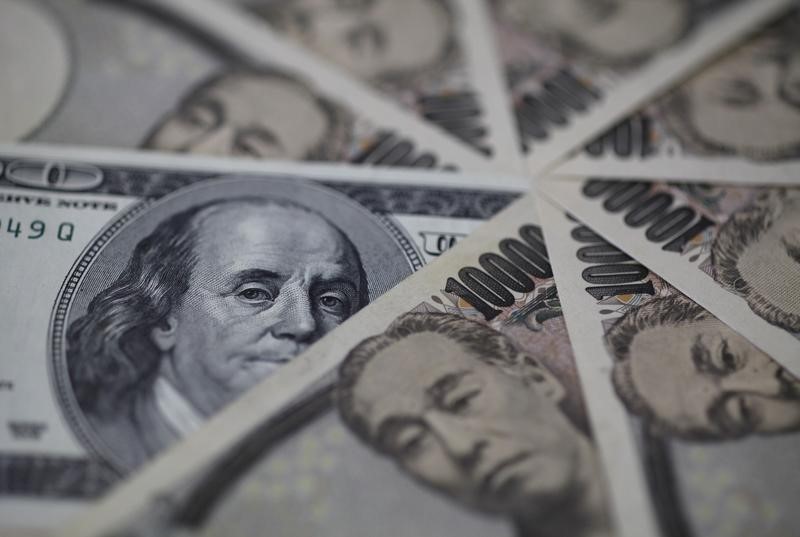Investing.com – The dollar surrendered gains against a basket of major currencies after President Donald Trump said the U.S. will impose tariffs on steel and aluminium imports next week, fuelling investor fears of a trade war.
The U.S. dollar index, which measures the greenback’s strength against a trade-weighted basket of six major currencies, rose 0.12% to 90.72.
Trump said the US will impose a 25% tariff on steel imports and 10% tariff on aluminium. The highly controversial move raised fears that the U.S.’s main trading partners including the China could take countermeasures, fuelling fears that trade war could break out.
European Union and Chinese officials were said to be considering a retaliation by targeting American products with political significance.
Fearing a potential trade war, traders piled into safe-haven currencies like the yen, which pared losses against the greenback to trade roughly unchanged on the day.
Offsetting that, however, were hawkish comments from Bill Dudley, who said four rate hikes this year would fit into the Fed’s plans to raise rates gradually. That came as Fed chair Jerome Powell testified before the Senate Finance Committee on Thursday.
Powell told a US Senate panel on Thursday that he does not see any evidence currently that the US economy is “overheating,” and insisted that there was little to suggest that wage growth has increased significantly.
Powell’s comments came on the heels of mixed economic data showing inflation continued to lag the Fed’s 2% target, while manufacturing growth remained solid topping economists’ expectations.
The Federal Reserve's preferred inflation measure, the personal consumption expenditures (PCE) price index excluding food and energy, rose 1.5% in the 12 months through January.
The Institute of Supply Management's manufacturing index rose to 60.8 in February, up from the 59.1 reading seen last month.
Following the recent round of the wage hikes by a host of US companies including Wal-Mart (NYSE:WMT) – as a result of lower taxes – consumer income rose 0.4% January, beating economists’ expectations of a 0.3% rise.
GBP/USD fell 0.25% to $1.3725 as negative brexit-related commentary overshadowed upbeat manufacturing data.
EUR/USD rose 0.01% to $1.2194 while USD/CAD rose 0.46% to C$1.2890 as falling oil prices continued to weigh on the oil-sensitive loonie.
